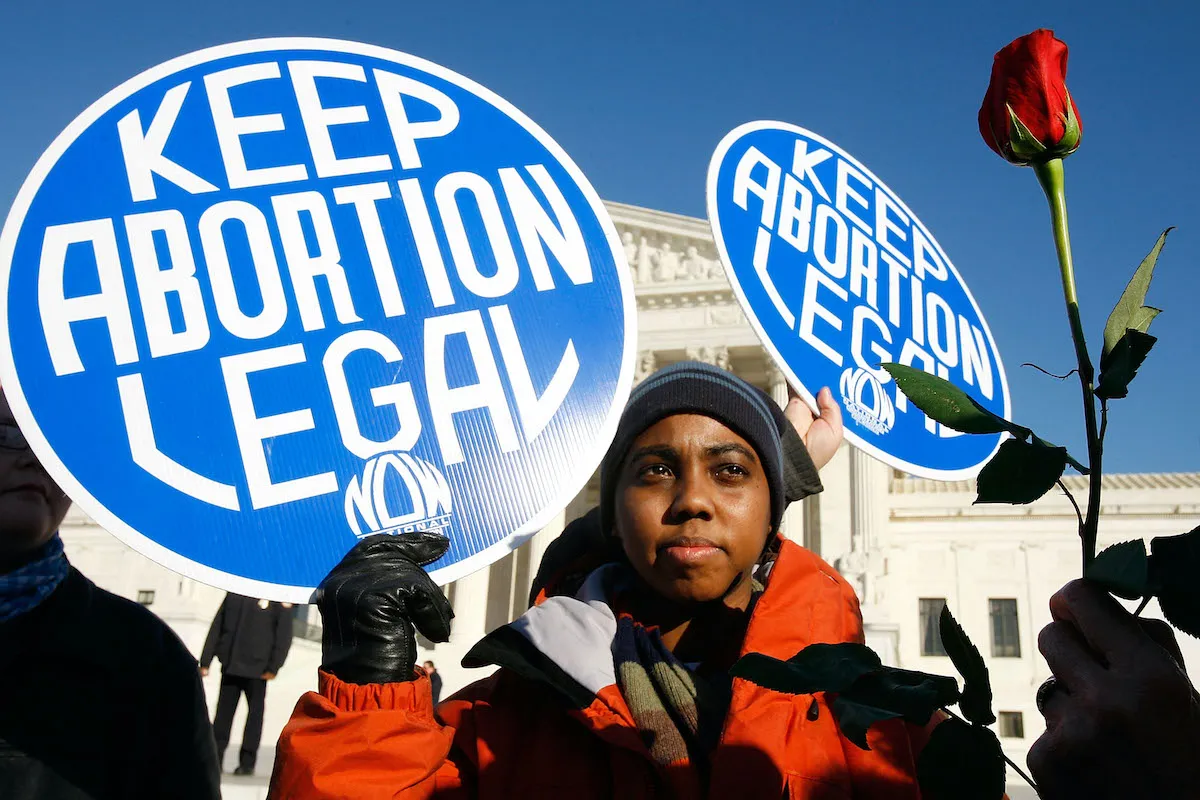In June 2022, when the Supreme Court overturned Roe v. Wade, the 1973 decision that guaranteed Americans the right to abortion, reproductive justice activists sounded the alarm. This is just the beginning, they warned. But naysayers claimed there was no cause for alarm, and, in fact, activists were overreacting, despite the fact that 13 states had trigger laws in place ready to ban abortion as soon as Roe was overturned.
One of those states was Arkansas, which banned abortion at any stage, and as activists and experts warned, that trigger law was just the first in a series of laws targeting bodily autonomy. Jessica Valenti, a feminist writer best known for The Purity Myth and her memoir, Sex Object, has been tracking reproductive laws in red states for years, and she’s sounding the alarm about a terrifying new bill being proposed in the Arkansas state legislature that would endanger people who can get pregnant even more.
Bill 1174 would expand the definition of abortion to include pregnancy loss “caused by a wrongful act, neglect, or default” and allow courts to try abortion as an act of felony homicide. The bill also removed language safeguarding anyone going through IVF, using contraception, or dealing with other medical complications that might increase the likelihood of pregnancy loss. All that matters, according to this bill, is birthing babies.
In plain language, if this bill passes, a person who loses a pregnancy in Arkansas could be prosecuted for anything deemed a risk to the fetus. That means if you drink a glass of wine, and your pregnancy ends, you could be prosecuted. If you lift heavy weights and your pregnancy ends, you could be prosecuted. If you smoke cigarettes and your pregnancy ends, you could be prosecuted. Hell, if you express dismay at being pregnant and your pregnancy ends, you could be prosecuted.
Given that about 1 in 3 people find out they’re pregnant after the six-week mark (which, incidentally, makes heartbeat bills essentially as effective as total abortion bans), that gives prosecutors six weeks of potentially “neglectful” or “default” behavior to focus on if they decide to pursue charges. And as anyone who has either been pregnant or known a pregnant person can attest, pregnant people often drink alcohol and caffeine and engage in other behaviors that could be deemed dangerous to fetal development until they find out they’re pregnant, at which time they immediately modify their behaviors.
Further, this bill redefines a fetus as an “unborn child” whose life begins at the moment of fertilization (rather than at the point of fetal viability, which is generally around 24 weeks, or even at the stage where the fetus is believed to develop a heartbeat, generally around 6 weeks). Redefining the moment of fertilization as the moment at which the fetus becomes an “unborn child” protected under this law means that all people who could potentially become pregnant should theoretically act as if they’re pregnant at all times, just in case.
There is also language in the bill that would no longer “allow a person to solicit, advise, encourage, or coerce a pregnant woman to abort her unborn child,” which means any medical professionals, advocates, or others who are found to have helped a person end their pregnancy—or even so much as suggested ending a pregnancy—could also be charged with homicide.
And of course, the bill does some wand-waving to avoid criticism around miscarriage by writing that the proposed legislation “does not authorize prosecution for an accidental miscarriage,” but as Valenti has pointed out, both in her Substack and on her Tiktok, this language is pernicious, inferring that there are miscarriages that are purposeful.
By definition, a miscarriage is the spontaneous loss of a pregnancy before 20 weeks, most of which are due to “chromosome problems that make it impossible for the baby to develop.” External actions by a pregnant person may contribute to pregnancy loss, but it’s not common, which is perhaps why anywhere from 10 to 20 percent of pregnancies end in miscarriage.
To sum it all up: this bill, if passed, is extremely dangerous to any people in the state of Arkansas who could become pregnant—and anyone associated with potentially a pregnant person who dares to suggest alternatives to carrying a pregnancy to term.
This has already happened in several high-profile cases around the country, including in the case of then-21-year-old Brittney Poolaw, an Indigenous woman from Oklahoma who was convicted of manslaughter after miscarrying a four-month pregnancy in January 2020. Stillbirth and miscarriage prosecutions have been increasing in number since the mid-2000s, and bills like this one will make it easier to criminalize having a body that can get pregnant. Likely, given the patterns that have already emerged from red states with strict laws, it’ll be the marginalized people who are targeted and punished most intensely.
So far, the pundits who claimed Valenti and her ilk were overreacting have been pretty quiet. My guess is that they’re currently doing mental gymnastics, the likes of which no one has ever seen, to explain why this isn’t actually that bad. In the meantime, we’ll be waiting and hoping for the people of Arkansas that this bill doesn’t pass.
(featured image: Alex Wong/Getty Images)









Published: Jan 27, 2023 03:23 pm